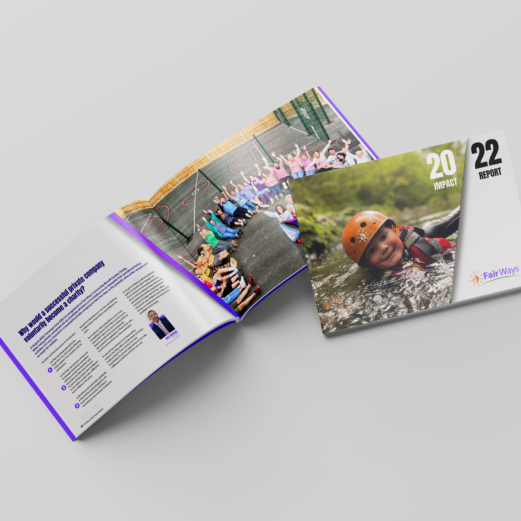
Fair Ways has published annual Gender Pay Gap information since 2018. This is an important issue for the company and the Board is committed to a strategy of reducing the gender pay gap. Fair Ways has just completed the data for 2020/21 and I wanted to reflect on the progress in the past year and to ensure that this issue remains current.
As the terms are sometimes used interchangeably, we emphasise that a gender pay gap is different to an equal pay gap:
- A gender pay gap measures the difference between the average pay of all male employees and the average pay of all female employees, irrespective of their job role or seniority.
- Equal pay concerns differences between the pay of specific groups of male and female employees performing like work, equivalent work or work of equal value.
In Fair Ways our summary position is as follows:
- That although Fair Ways is confident that it pays men and women equally for the same role, our Gender Pay Gap (GPG) is a result of more men being in more senior positions.
- In 2020/21 Fair Ways Mean Pay Gap has reduced.
- We are committed to addressing any barriers that may exist to the promotion and attainment of women.
- Addressing the complex causes of our gender pay gap will take time to achieve.
Whilst the drivers of the pay gaps are well understood at an institutional level (primarily reflecting attrition of women at the most senior pay grades), there is evidence that these gaps are gradually closing.
There is a good representation of women in the two upper quartiles of the business suggesting that women are well represented in our higher Pay Bands. However, women are also statistically significant over-represented in the two lower quartiles which has a significant impact in drawing down the average pay of women.
Understanding and engaging with a diverse workforce can help us to provide employee benefits that meet the needs of our workforce, including at different stages in their employment life-cycle with us.
Everyone at Fair Ways is unique, representing different genders and gender identities, ethnicities, age groups, faith and beliefs and different socio-economic backgrounds. To benefit from our diversity, we must create and embed a culture of inclusivity where we are encouraged to be ourselves at work and where every one of us feels able to have our own voice and represent our own ideas.
We are committed to equal pay for work of equal value founded on a system free from bias. We aim to eliminate any bias in our reward and recognition processes and recognise that in order to achieve equal pay for employees doing equal work we must operate processes that are transparent and based on fair criteria.
Due to the COVID pandemic, the publication of annual Gender Pay Gap results were delayed and as such we will comment on trends in both 2020 and early 2021.
During 2020 Fair Ways focused on a policy of flexible working for women, especially those returning to work for childcare reasons. This focus aimed to encourage all women, including those in more senior roles, to return to work or remain at work through greater support and flexibility. Examples of this were job sharing, flexible hours to fit in with lifestyle changes and support to have greater quality time.
In 2021, one of the few positives results of the COVID pandemic has been to radically accelerate the move to hybrid working for those staff that can avail of this. It is expected that this flexibility will disproportionally benefit women employees and provide greater career options.
We are pleased to also note an increase in the number of women in more senior positions, including in the past year the Deputy Directors of Education and HR joining the Operations Board.
A detailed report of Fair Ways 2020/21 Gender Pay Gap results is attached and is also being placed on the Fair Ways website.
Fair Ways Newsletter
Keep up-to-date with our monthly news, events, and insights.

Fair Ways Newsletter
Keep up-to-date with our monthly news, events, and insights.
Want to see something different?
We are always looking for feedback! If you think we are missing the chance to shout about something great that is going on, let us know!
Send us your feedback

